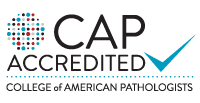
Using ActX are Practicing
Precision Medicine Today
Actionable, physician-friendly, genomic decision support and genetic interpretation
GenoACT℠ analyzes the patient's genetics and gives you actionable clinical decision support information
within your normal EHR workflow. Prescriptions are checked in the background against the patient's genetics
as you order them, and you are alerted if there is a significant issue. For serious actionable risks, you
are alerted in your normal clinical inbox as they are detected.
ActX KnowledgeBase
The GenoACT℠ knowledgebase is built by a team of clinicians, geneticists, genetic counselors, and clinical
pharmacists, continuously updated and informed by leading medical geneticists.
Integrated into your electronic health record, every time you write a prescription ActX checks the
drug against your patient's genetics, alerting you if there's an issue with adverse drug reactions,
efficacy, or dosing. ActX covers most common U.S. prescription drugs.
Almost 90% of patients carry variants that affect medications. Based on the ActX curated
KnowledgeBase of the latest published clinical studies, you will be able to:
- Avoid serious adverse reactions such as Stevens-Johnson syndrome or syncope
- Prescribe an effective drug immediately rather than waiting a month or two to discover that the drug was ineffective and must be changed
- Individualize dosing for selected medications
The ActX patient genomic profile shows actionable patient genomic risks for cancer, cardiac disease,
metabolic disease and other conditions that often are not identifiable from family history and are
asymptomatic.
Around 3% of patients have serious hereditary risks. About 20% of patients have genetic risk
factors which are less serious and typically need another factor to become a serious risk.
For example, patients with Lynch Syndrome, a genetic condition affecting hundreds of thousands of
Americans, can have up to a 70% lifetime risk of colorectal cancer, and begin colonoscopy screening
at age 25 or 30.
ActX's carrier status panel now includes more than 250 conditions. This can help your clinicians
provide your patients information about the risk of parents passing on serious recessive genetic
conditions to their children.
60% of your patients who plan to have children will have at least one genetic condition they may
pass on to their children.
ActX information is continuously updated and includes references. Our system evaluates the strength of the evidence and the quality of the patient data. Existing patient genetic data is frequently reanalyzed and your clinicians will be alerted if an important new issue is found for a patient. ActX can be accessed via your EHR or directly on the ActX website.
Patient genetic testing is ordered within your EHR or online
To support your patient conversations, you will be provided with:
- Guidance to choose which of your patients would benefit from the screening service and the support information
- Supporting guidance and material to help you discuss the genetic screening with your patients
If ActX genetic testing is used
- After authorization - your patient received an email that allows them to sign up for testing, be consented, and receive a home saliva kit
- After collection of 1 cc of saliva at home and confirmation of their identity, the kit is dropped in the mail and sent to our CAP/CLIA certified laboratory, where it is genotyped
After testing
- When the patient genomic profile is available you will be alerted inside your Electronic Health Record (EHR). If no EHR integration is present, alerts are by email. The patient will normally have access to their genomic profile in easy to understand patient language a week after the provider.
- Prescriptions written in the EHR will be automatically checked (in background) against the patient's genetics for efficacy, adverse reactions, and dosing.
- Patient genetic data is frequently re-analyzed using the latest knowledge. If an important change in your patient's genomic profile occurs, you will be notified. The patient will subsequently be notified as well.
HELP YOUR PATIENTS GET ANSWERS

